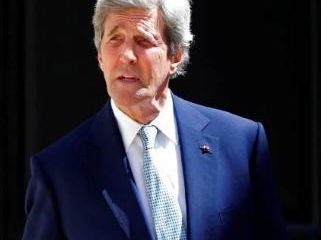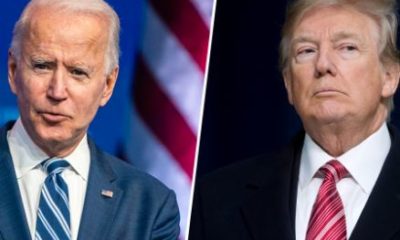World
Relevance of Mahatma to peace, sustainable development highlighted at UN

United Nations: Mahatma Gandhi’s undying inspiration for today’s twin priorities of international peace and sustainable development was hailed Friday as the UN observed Gandhi Jayanthi as International Day of Non-Violence.
Issuing a call to “renew our commitment to non-violence and lives of dignity for all,” Secretary-General Ban Ki-moon said, “Today, at a time of escalating conflicts, rising extremism, massive displacement and rapidly growing humanitarian need, Mahatma Gandhi’s dedication to non-violence remains an example for us all.”
“The new 2030 Agenda for Sustainable Development can also point the way towards reducing violence, promoting harmony between people and planet, and making the world safer for all,” Ban said.
Ban recalled his visit to the Sabarmati Ashram and said that Gandhi’s saying he saw there, “If blood is to be shed, let it be our own,” impressed him. “Gandhi was calling on people to refuse to kill – instead, to be willing to die to save others.”
Ban unveiled a portrait of Gandhi presented to the UN by India. The painter of the portrait, Raghubir Dayal Parikh, was present at the ceremony. The celebrations featured a program combining a video of Gandhi’s saying and key moments in his life with a live voice presentations and a performance of a cello piece specially composed by Michael Fitzpatrick.
External Affairs Minister Sushma Swaraj had been scheduled to deliver the presidential address. But Ban said that she “had to return home owing to a family emergency.” He added, “Our thoughts are with her.”
With the just concluded world sustainable development having adopted an ambitious agenda to end poverty and protect the environment, Indian Foreign Secretary S. Jaishankar spoke of Gandhi’s relevance the mission calling him “the original sustainable development guru.”
“Appropriately India chose to announce its INDC (Intended Nationally Determined Contributions or commitment on lowering greenhouse gas emissions) on Mahatma Gandhi’s birthday,” he said in his presidential addres. “This was to underline our moral commitment to sustainable development.”
Jaishankar said Mahatma Gandhi’s three guiding principles – -‘ahimsa'(non-violence), ‘satyagraha’ (force born of truth) and ‘sarvodaya’ (uplift of all) — – continue to provide the world with approaches to address a range of complex challenges, many of which may not have even existed during his lifetime.
“In our times, we have seen the growth of religious bigotry and intolerance,”he said. “In many cases, this has directly fueled support and sponsorship of terrorism.”
“Unfortunately, the world has often looked away when terrorists have attacked innocents, assuming that it is not their problem,” he added. “As a believer in the indivisibility of the world and the importance of moral courage, Gandhiji would ask us all to stand up and be counted.”
General Assembly President Mogen Lykketoft quoted Gandhi’s works, “Non-violence is the greatest force at the disposal of mankind. It is mightier than the mightiest weapon of destruction devised by the ingenuity of man.”
Lykketoft said, “These words resonate with the very principles of the UN Charter; with the UN’s promotion of peaceful settlements to disputes, and the primacy of reaching solutions through diplomacy and other peaceful means.”
During the current General Assembly session there are opportunities for Bringing Gandhi’s vision closer to reality, he said. The new sustainable development goals adopted a week ago and the momentum building around climate change show that the universality that Gandhi preached was happening, he added.
“Let us work together for the betterment of our planet and our people” inspired by Gandhi, he said.
Bangladesh Finance Minister Abul Maal Abdul Muhith, a self-described Gandhian, said that even though his father was a Muslim League leader, for him as a youth Gandhi had his own appeal because “he cared for everybody.”
He recalled that a 14-year-old he wept as he went around Sylhet conveying the news of Gandhi’s assassination and the condolence meeting for him.
Gandhi led the khilafat movement across India protesting the dismantling of the caliphate in Turkey, Muhith said. But when it turned violent and police were attacked, he called it off because it went against his principle of non-violence.
In today’s world, Gandhi may not have liked the proliferation of technology and the lifestyles, but he would have been impressed by the concern for peace, he said.
South Africa’s Permanent Representative Kinglsley Mamabolo said that Gandhi’s influence was felt in his nation’s constitution that emphasised unversality of its people. India and South Africa are working together for world peace, he said. “We continue to be connected across the ocean.”
Belarus Deputy Foreign Minister Aleksandr Mikhnevich said that Gandhi’s message resonated around the world in the quest for peace. He noted that his president, Alexander Lukashenko, had in his address this week to the General Assembly had cited Gandhi’s saying, “An eye for an eye only ends up making the whole world blind,” as warning to nations and as a call for peaceful resolution of disputes.
“Let us build our relationships on the basis of peace,” Mikhnevich said.
Kazakhstan’s Permanent Representative Kairat Abdrakhmanov said, “We need to start a global non-violence movement.” Non-violence is a “pillar of the future of humanity,” he added.
Japan’s permanent Representative Motohide Yoshikawa said the life and message of Gandhi should be spread among the younger people. His teachings should be spread beyond India and South Africa, he added.
From Latin America, Brazil’s Permanent Representative Antonio de Aguiar Patriota said that Gandhi was a guide to the world. And Nicaragua’s Permanent Representative Maria Rubiales de Chamorro said that Miguel d’Escoto Brockmann, a Catholic priest who was her nation’s foreign minister and a president of the General Assembly was a disciple of Gandhi.
World
Lockdowns in China Force Urban Communities to Defy Censorship and Vent Frustration Online

Shanghai’s rich middle class is leading a wave of online dissent over the strict and prolonged lockdowns imposed in various parts of the country. Chinese internet censorship is struggling as patience is wearing thin in many urban centers, coming up with creative forms of online protests.
Social Media Posts Revealing Lockdown Tension in Shanghai
Drawn-out lockdowns are nothing new in China as authorities insist with the nation’s zero-Covid policy since the start of the pandemic. Currently over This time around, however, metropolitan areas like Shanghai are increasingly difficult to keep quiet, given that its more than 25 million residents have seen weeks of total isolation along with food shortages and many other service interruptions.
Dozens of towns and reportedly over 300 million Chinese citizens have been affected by lockdowns of different severity. As expected, urban netizens have been most outspoken over their difficulties by finding creative ways to get around state censorship and bans placed on topics, news comments and spontaneous campaigns.
Shanghai residents have been using mobile proxies and hijacking seemingly unrelated hashtags to talk about healthcare issues, delivery failures and the overall severity of their situation. The “positive energy” that the Chinese government wants to transmit during the recent prolonged series of lockdowns does not come naturally to those counting food supplies and online censors are working hard to filter words, trending topics and undesired social media sharing.
WeChat groups and message threads are under constant monitoring. Posts questioning the zero-Covid approach have been quickly deleted, including by leading Chinese health experts like Dr. Zhong Nanshan. Video footage is soon censored and protests and investigations are quickly made to disappear.
Where this has not worked, officials have exposed banners with warnings and outright threats like “watch your own mouth or face punishment”, while drones have been patrolling the city skies. Yet, if anything, this has led to further tensions and unspoken confrontation with Shanghai’s educated and affluent middle class.
Creative Online Solutions Harnessing Civic Energy
Announcements by Chinese social media that they would be publishing the IP addresses of users who “spread rumors” have not helped either. Tech industry research has shown that much of Asia’s tech-savvy population has a habit of using mobile proxies and other privacy tools, quickly finding workarounds to browse the internet freely and talk to the world about the hottest topics.
The sheer volume of forbidden posts is already a challenge for the very censorship system, experts explain. Unable to track all trending hashtags, state workers overlook topics that speak about the US, Ukraine or other popular news. Linking human rights elsewhere to their situation, Chinese online dissidents establish their informal channels and “hijack” the conversation to share personal or publicly relevant information about the Covid suppression in their town.
Sarcastic and satirical posts still dominate. Others hope to evade the censors by replacing words from famous poems or the national anthem. One thing is certain – social media, when harnessed with the right creativity, has proven its ability to mount pressure on the government in even some of the most strictly controlled tech environments like China.























